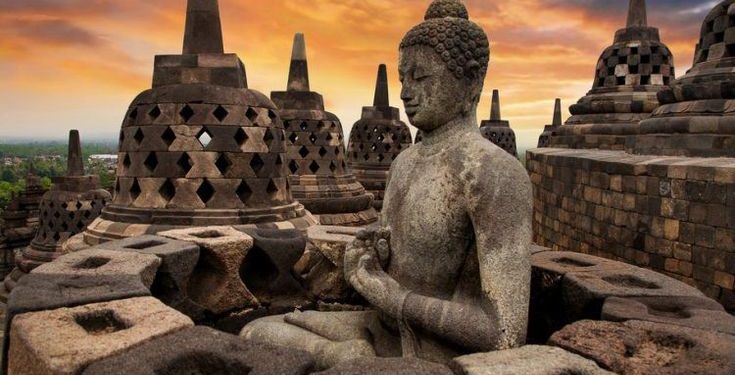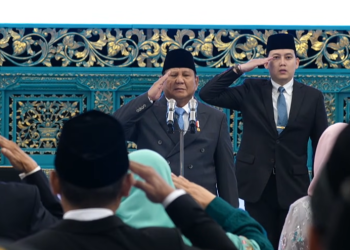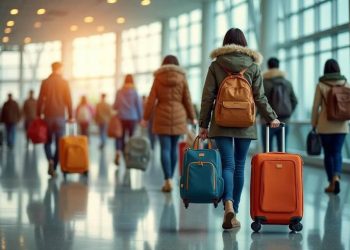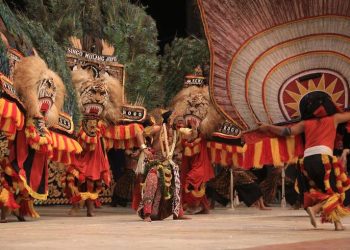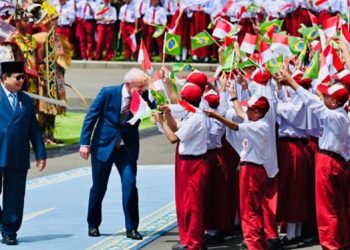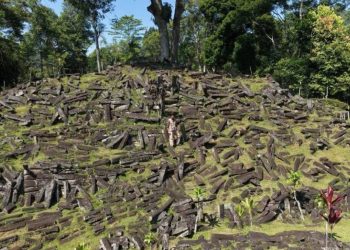Jakarta, Indonesia Sentinel — Indonesia’s Ministry of Religious Affairs (Kemenag) is supporting the pilot program to promote spiritual tourism, known as dharmayatra, at the iconic Borobudur Temple in Magelang, Central Java.
The initiative’s trial, themed “Cultural Spiritual Inclusive,” was held on Thursday (June 12). Supriyadi, Director General of Buddhist Community Guidance at the ministry said the program could elevate the site’s status as a global Buddhist pilgrimage destination.
“We’ve been consistently organizing religious events and promoting Borobudur and neighboring temples such as Mendut, Pawon, and Sewu as spiritual tourism hubs for both Indonesian and international Buddhists,” Supriyadi states, as reported by Antara.
He added that the Borobudur temple has as hosted major Buddhists ceremonies such as Vesak celebrations, Kathina, Magha Puja, Asadha Chanting, novice ordinations, and other important rituals. Emphasizing the importance of Borobudur temple as Buddhists spiritual tourism hubs.
The dharmayatra spiritual tourism trial attended by roughly 150 Buddhist participants, representing religious organizations and Buddhist universities. Many noted that worship felt more solemn and meaningful due to the group rituals led by senior monks (bhikkhus and banthe).
Bhikkhu Ditti Sampanno, who led the trial, explained that a dharmayatra in Buddhism involves not just sightseeing, but a spiritual journey to deepen understanding of the Dharma and strengthen faith.
Read Also:
Borobudur Temple Named Among World’s Most Wonderful Places of Worship
Bhikkhu Ditti Sampanno said the trial was designed to evaluate the timing and activities involved in a Buddhist spiritual pilgrimage, or dharmayatra, at Borobudur.
“This is a trial to see what can be done in a one-hour period. We found that within that time, we could conduct prayer rituals, offer respects, meditate, and perform the Puja Mandala ceremony at Borobudur Temple,” he explained.
The dharmayatra experience is currently allocated a two-hour slot, from 7 a.m. to 9 a.m. With a maximum of 150 participants per hour, the “Cultural Spiritual Inclusive” program can accommodate up to 300 pilgrims during each trial session.
Ditti Sampanno suggested more flexibility in the future. “Ideally, we’d prefer not to be time-restricted, but simply given a dedicated space to avoid disrupting regular tourists. Or perhaps we could be allowed access in the evening, say from 4 p.m. to 9 p.m.,” he added.
The trial was made possible through collaboration between Buddhist foundations, religious councils, universities, schools, and local travel agencies. With a global Buddhist population of roughly 400 million, organizers believe Borobudur’s spiritual tourism has potential to be realized.
(Raidi/Agung)


